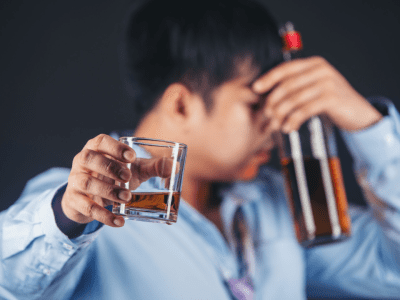Five Signs Your Drinking Is No Longer “In Moderation”

Alcohol is a part of many people’s lives, and in moderation, it’s perfectly fine. A glass of wine with dinner, a pint after work, they can all be normal, harmless, and a nice treat at the end of a day.
However, moderation isn’t just how drinking feels in the moment, and ofte,n moderation can stray into binge drinking or more problematic relationships. Many alcohol rehabilitation centres welcome people through their doors in where drinking moderation has seen the line crossed into risky drinking, eventually becoming dependent and struggling with getting by without turning to the bottle.
Understanding when the line gets crossed is really important and recognising the signs that it’s the case can be instrumental in getting the help you need and stopping the pathway to addiction early.
Here are five signs that your “drinking in moderation” is straying into the problematic…
You’re Drinking More Often Than You Realise
Moderation tends to be drinking occasionally, rather than as part of a daily routine. If it’s becoming a fixture in your everyday life, even if it’s one or two, then that moderation may have slipped into habit.
Just because you’re not drinking to excess, that doesn’t mean it’s in moderation. In fact, it can quickly tally up and cause physical health issues and a psychological dependence.
You Struggle to Stick to Limits
One big sign is finding it difficult to stick to your limits. If you’re intending to just have a glass of wine in front of the TV but that’s turning into two or three, then that’s a loss of control. As is staying in the pub for one or two more pints. That’s a strong indicator that moderation is slipping.
Drinking in moderation means being able to stop when you intend to. If that’s not happening, then it is worth considering your relationship.
Your Drinking Is Affecting Your Daily Life
Ultimately, if drinking is affecting your life in any way, whether it be your health, relationships or responsibilities, then it’s a problem.
It’s as simple as that. If you’re less productive at work, you’re arguing more with partners, or even you’re getting less sleep, or it’s more disrupted, then alcohol is undoubtedly having more of an influence on your life than it should be.
You Rely on Alcohol to Cope
Moderation means drinking for enjoyment, not necessity. If you find yourself turning to alcohol as a way of managing stress, boredom, loneliness, or other emotions, it may be a sign of dependency.
Using alcohol as a coping mechanism often starts subtly, perhaps a drink after a difficult day, but can quickly become a routine that feels hard to break. When alcohol becomes the go-to solution rather than one option among many, it is a clear signal that moderation has been lost.
You Notice Physical or Psychological Warning Signs
Finally, there will be warning signs. Alcohol will have an impact on your body and mind if you’re going beyond moderation. Regular hangovers, disrupted sleep, heightened anxiety and memory lapses are all common and signs that your drinking is taking its toll.
You may notice things like increased tolerance, or even mild withdrawal symptoms after a session. It’s your body telling you that your relationship with booze isn’t right. And it should be addressed to ensure you don’t slip into something even more problematic.

























